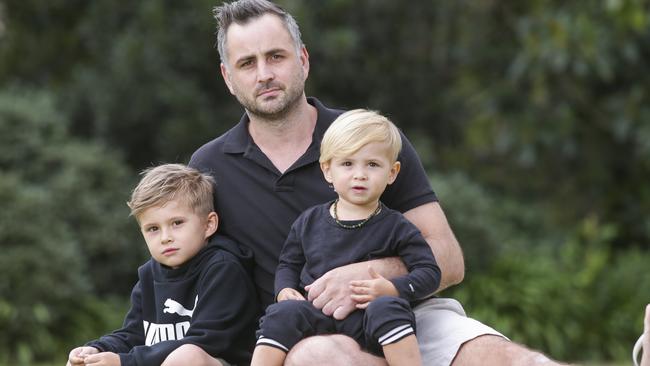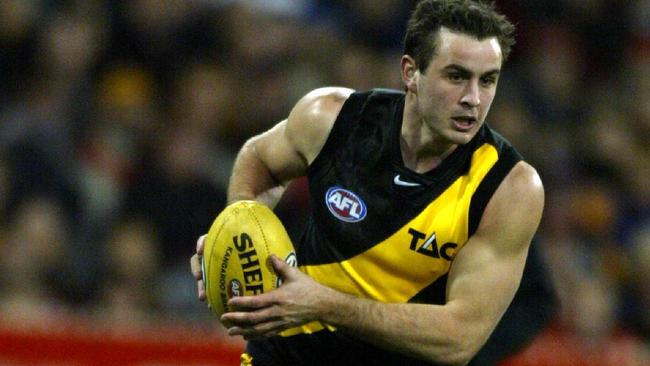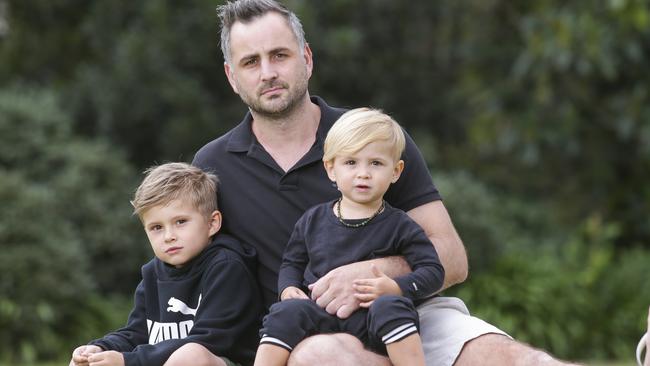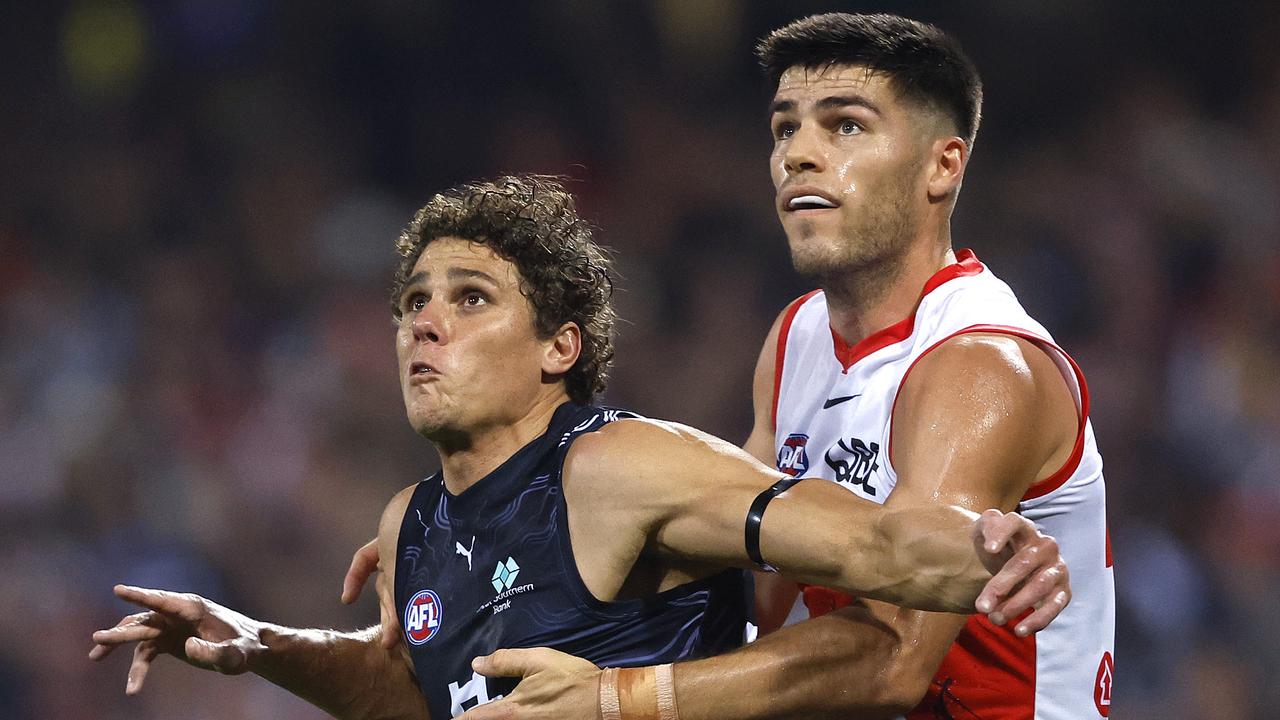AFL clubs need stricter record-keeping systems for player medical files, Dr Peter Larkins says
Rules allowing AFL clubs to dispose of player medical records after just seven years is fraught with danger, a top medico says given the current climate of litigation and concussion and Ty Zantuck’s case against Richmond proves it.

AFL News
Don't miss out on the headlines from AFL News. Followed categories will be added to My News.
A top medico says rules allowing AFL clubs to dispose of player medical records after seven seasons are fraught with danger.
Leading sports physician Dr Peter Larkins said professional sporting clubs needed stricter record-keeping systems “in the current climate of litigation and concussion”.
A damages claim launched by former Tiger Ty Zantuck over a spree of painkilling jabs administered to him between 2001-03 has been hampered by the absence of any medical records at Punt Rd prior to 2004.
NO RECORDS: ZANTUCK’S DAMAGES CLAIM HITS A HURDLE
MOTHER’S ANGUISH: FOOTY RUINED MY SON’S LIFE
“I think every club should be put on notice,” Larkins said on Friday.
“Clubs and club doctors need to have a system in place — and we’re not talking about thousands of files here, we’re only talking about dozens of files — where those records are kept for much longer than the standard person in the street who has had a flu shot at a general practice.

“The law of the medical world for a patient is seven years, but AFL is a bit of a different circumstance because of the way things go with post-career problems, whether it’s knees or hips or an aggrieved player.
“When it comes to the head, who knows what sort of cases are going to be brought against the AFL over the next decade.
“So I’m surprised that clubs aren’t more in tune with that.
“There are many current examples of AFL players who have had multiple surgeries or injury-plagued careers, and I suspect clubs would be conscious of potential disability claims from them later in life, so records must be thorough and preserved.”
SUPERCOACH: JON RALPH’S 2019 TEAM REVEALED
NEW FORMAT: CASH TO ENTICE STARS TO PLAY AFLX
SUPERCOACH: TRADED PLAYERS WORTH CONSIDERING IN YOUR TEAM
Larkins said record-keeping across the AFL had improved in recent years.
“When I started in footy, medical records at clubs were hopeless. A lot of footy club consultations were held in the carpark or on the ground,” Larkins said.
“Some clubs were really good at records, but some were awful compared to what we would do in our own office.
“Many years ago some clubs started realising with people suing over ground surfaces and other things, that they needed to have evidence of the injuries.

“But it’s likely we need to have a different set of rules for professional sport.
“Most doctors would be keeping good records today.”
Larkins declined to discuss the Zantuck issue but said “the concept of blocking pain and throwing needles was rampant in the 1990s”.
“I’ve always been very careful talking about medical practises at AFL level. It’s really front-line medicine and there are lots of compromises made in sport,” he said.
“It’s a different world and there’s still a very fine line with doctors trying to keep blokes on the park, and you’ve got to remember some of the players are pushing for this, too.
“It’s often the player requesting it: ‘Can you put something in my ankle at half time? Can you put something in my shoulder?’
“So in the current environment the doctor has to consent that and record it to protect himself.
“And in 2018 that should be in a medical record. But was it in a medical record in 2000? Maybe not.”


